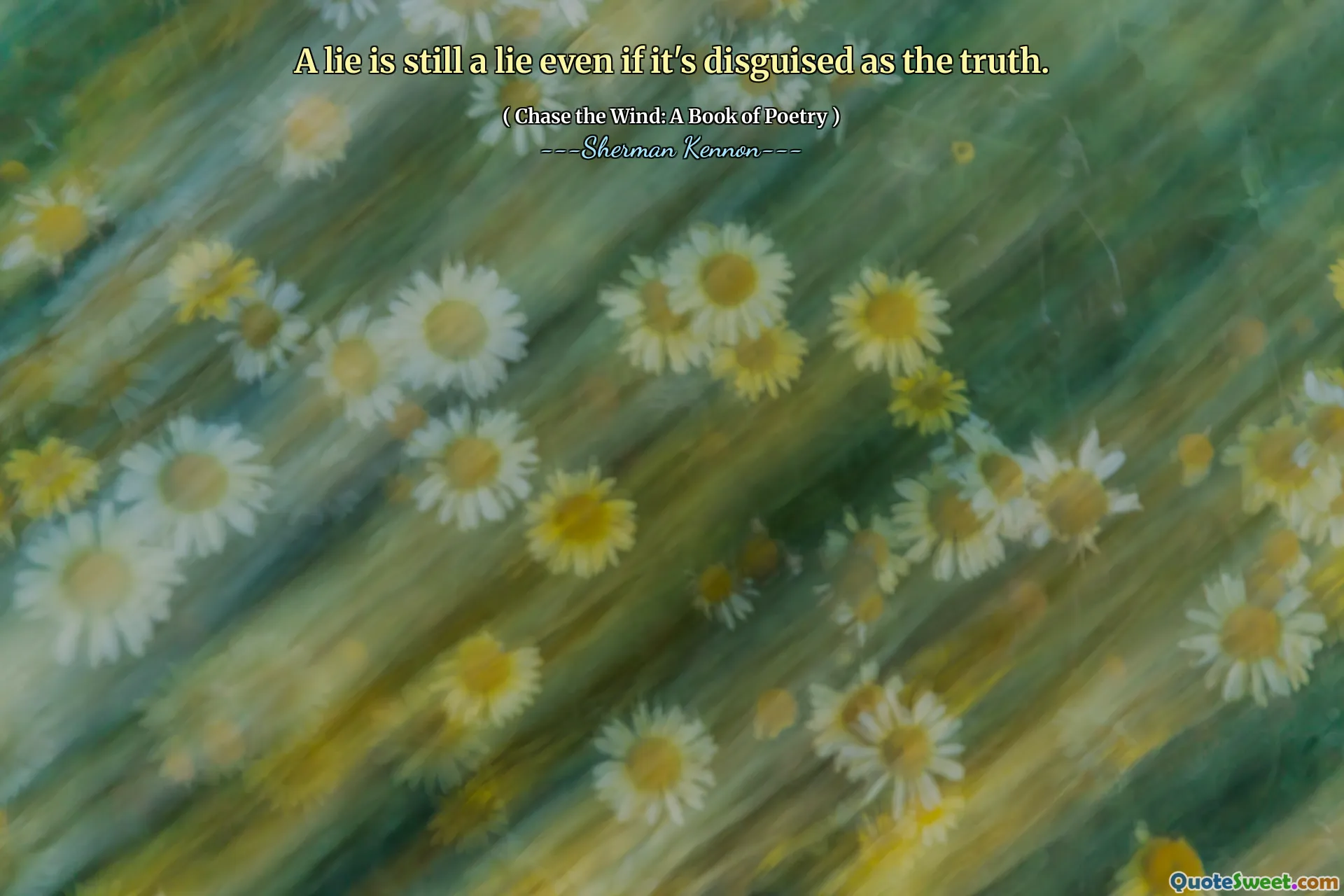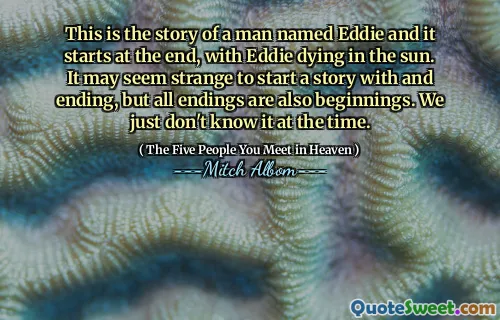
A lie is still a lie even if it's disguised as the truth.
This quote highlights the fundamental nature of dishonesty and how it remains unaltered regardless of the manner in which it's presented. The essence of truth and falsehood often lies beneath surface appearances. When someone disguises a lie as the truth, they intentionally obscure reality to manipulate perception. This can have profound implications in personal relationships, politics, media, and wider society. It serves as a reminder that appearances can be deceptive, and one must remain vigilant in discerning genuine truth from fabricated narratives. Recognizing that a lie does not become truth simply because it is presented convincingly compels individuals to question and verify information rather than accepting it at face value. It underscores the importance of critical thinking and integrity in our interactions. Moreover, it reflects on the nature of deception—no matter how sophisticated the disguise, the underlying falsehood persists. The quote encourages a moral stance to uphold honesty and denounce deceit, emphasizing the harmful effects lies can have, especially when embedded within what seem to be credible stories or facts. In our era of information overload and digital communication, this sentiment remains exceptionally relevant, warning us to look beyond surface-level messages and seek authenticity. Ultimately, the quote reminds us that honesty is the only foundation upon which trust can be reliably built, and disguising falsehood as truth can only weaken that foundation over time.






